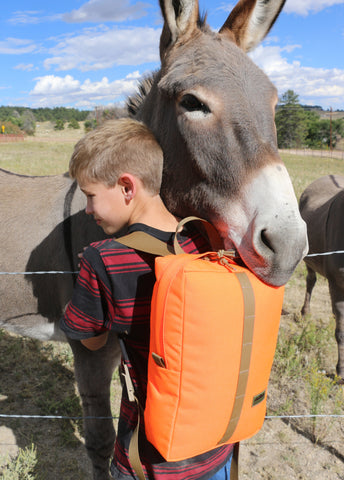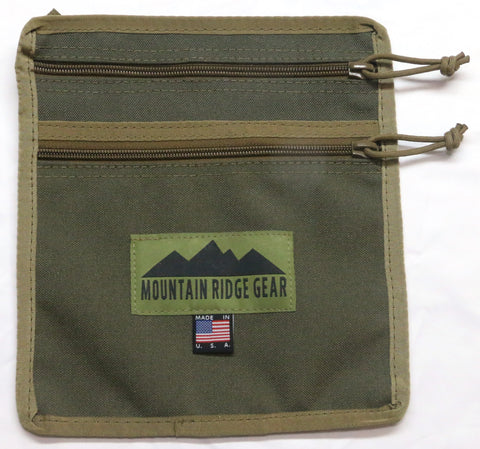“There are no lessons learned. There are only lessons relearned.” Those were the wise words of one of my military commanders many years ago. His words ring true as I see more and more new (and old) donkey and mule owners making mistakes.
There was a time when millions of Americans depended on equines for wilderness exploration, agriculture, personal transportation, moving goods overland and military use. Many of my friends that I consider experts are concerned about what they’ve been seeing as donkey and mule ownership surges. I share their concern and frustration. I fear the intimate knowledge my great-grandfather had of how to use and care for working equines, especially mules and donkeys, is fading fast. My opinion is based on what I regularly observe at the many shows I go to throughout the year. I also see the “Facebook Experts” dispensing free advice. The daily borage of bad information makes me cringe as I read posts on various equine groups. Sometimes it’s best to avoid them so my blood pressure doesn’t spike.
I got my first two donkeys from the late Curtis Imrie. I still remember the last thing he said as I pulled out of his ranch..."You're gonna learn a lot". I had no idea!
Before I owned donkeys I was seriously lacking in understanding them. So, I did what most folks do that have owned horses, I applied horse logic. I quickly realized what I thought I knew about donkeys was seriously lacking. Applying horse methods to donkeys only frustrated me and the animal. After all, donkeys are not horses with long ears. Donkeys (and mules) are different physically, mentally and physiologically. To better understand donkeys, I’ve attended multiple clinics with multiple clinicians, read a dozen or so books, watched lots of videos and DVDs and I regularly consult with wranglers and trainers I consider experts. Most importantly, I have learned from my successes and failures while trying to maintain a sense of humility. Some of the smartest people I know are those who insist they are still learning. All this “experience” has only served to highlight the vast chasm of things I still don’t know about working with donkeys and mules.
Even though I’m still learning, I have a better understanding of the differences between long-ears and horses. So, I notice when other donkey and mule owners are committing some of the mistakes I made. But here is the frustrating part…many don’t seem to care. It’s the small details where I see issues. For instance, someone on Facebook might make a comment on a post and I will click their profile. Right off I notice things in their posted pictures like a saddle too far forward, an improperly fitting saddle, incorrect or incorrectly adjusted cinches, incorrectly or non use of breeching or breast collars. For me, these little things tell a lot about the “expert” mule or donkey owner.
Each year I attend the largest mule gathering in the world. Before I went to the Mule Days I had high expectations of seeing quality mules and quality mule owners. I must admit, I was somewhat disappointed. Don’t get me wrong, there are some fantastic mules at this show and some very experienced mule owners. But, in contrast there were far too many folks seriously lacking in mulemanship. As a result, I’ve seen a few wrecks that can be attributed to improperly fitting tack, which highlights the seriousness of the situation. I watched a large man in the trail class fly over the head of his mule, saddle and all, and slam face first into the ground when his mule made a quick stop. There was no breeching, no breast collar and a poorly fitting horse saddle with a single cinch. It was an accident waiting to happen. Luckily, the only injury was his pride.
With so many people coming into the mule and donkey community there seems to be a huge lack of knowledge. Facebook is NOT the best place to find out about proper donkey or mulemanship. Take the time to understand these equines and don’t be afraid to second guess your level of knowledge especially if your knowledge is based on horses. Admit when you don’t know something, then take the initiative to learn as much as you can from as many sources as you can. Donkeys and mules can endure a lot and most of them do not let us know there’s a problem until the pain is severe. This is why I am constantly striving to keep my animals comfortable. Comfort extends not only to tack but proper hoof care, diet, training techniques and more. Do your donkey or mule a favor, pay attention to the small details.
PS: It's OK to make mistakes. Just make sure you learn from them.




Peter Maxwell
I really do agree with this! I think kids should really practice and learn equipment like the horse breast collar installation and basic horse riding, calf roping techniques first in order to become full pledged cowboys! I even bring them to the https://ropingsupply.com/collections/breast-collar-and-trippin-collars which is a horse supply store near us to really let them learn the stuff!
Miriam
I am new to donkey world,( but only because some land my parents recently bought came with a 8 year old guard donkey.) my donkey is very affectionate. I am always afraid to mess her up. From what I am learning, there is no support for donkeys
Steve Ball
Well written, enjoyed the comments, and your videos are educational… thanks Eric!
Denise
What a wise article. I fully understand what you are saying. I work with a very complicated dye plant called woad and even though I am considered a specialist, I still learn from error and correction. I live in France and am a long distance ridder. I’ve come to mules by passion as well as draft horses. I learn each day with them and understand your point of view. I also regret that so many persons do not have the humility to observe and admit their errors with their long ears. Thank you for your commente and post.
Vince Mautino
In the last few years, I frequented about every mule type Facebook page there was and before Facebook there were mule forums on the internet. Now not so much. The ignorance and ego from several well known so called mule experts is astonishing. Some of these groups are Mules of ( insert your favorite state) You will get called stupid and worse, belittled and verbally abused.You will get women ( I apologized for calling them out) that seem to make up the majority of this new craze to own a mule.They will take these so called expert’s advice as gospel and buy sorry , bad dis positioned poorly trained mules and end up with injuries.Some very serious. They don’t know why they want a mule,but since everyone else does,it must be the thing to do.The mules are the one that suffer then. They want the mule to be their best buddy rather than giving it leadership.
Most in the mule world today are younger than the years I have spent with mules and profess to know everything. Every day when I go out to see mine,they teach me something different. I think they teach me more than I teach them. Patience, humility, sense of humor come to mine ,but mostly kindness